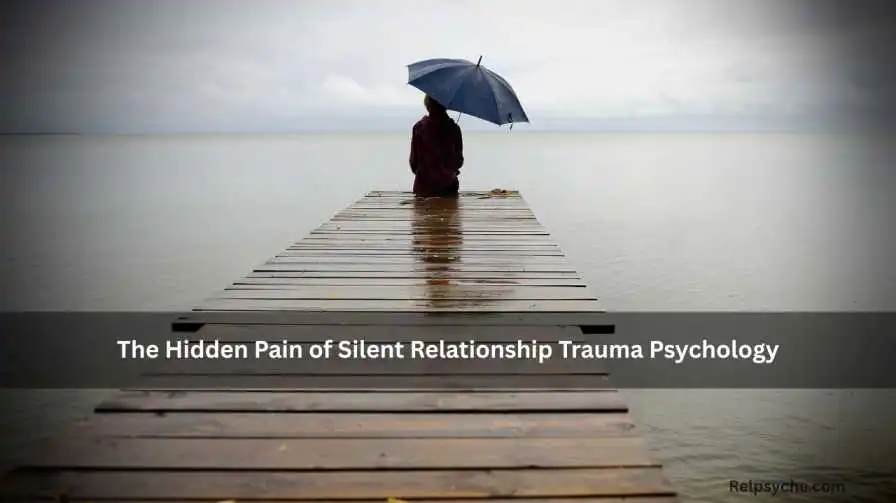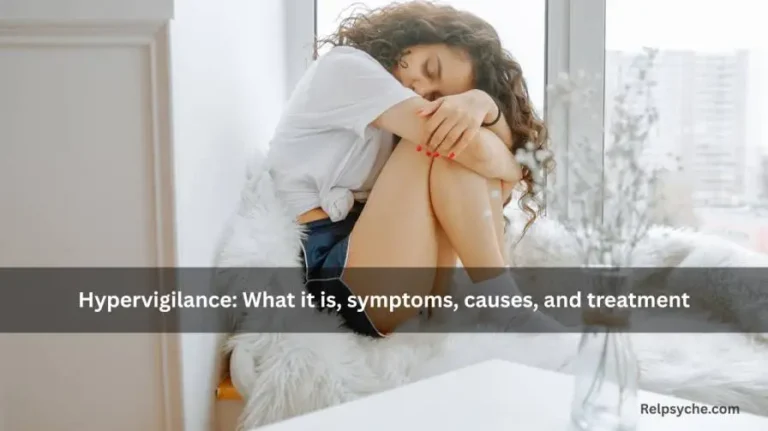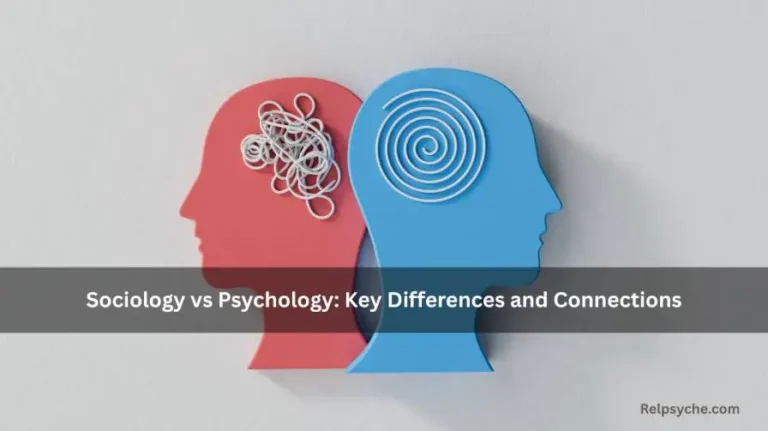Silent Relationship Trauma Psychology
Silent relationship trauma psychology is about the pain we feel when someone we love stops talking to us or shuts us out. This kind of hurt doesn’t come from yelling or fighting. It comes from silence—when the other person gives no attention, love, or care.
Even though nothing is said, the silence feels loud and painful. In this article, we will explain silent relationship trauma psychology in simple words. You will learn what it means, why it happens, how it feels, and how you can heal.
Table of Contents
What Is Silent Relationship Trauma Psychology?
Silent relationship trauma psychology means the study of how silence in a relationship can hurt our minds and hearts. This kind of silence is not peaceful. It is cold, sad, and full of pain.
Examples:
- Your partner stops talking to you for days.
- You feel like they don’t care anymore.
- They are in the same room, but they don’t speak or look at you.
This kind of silence makes you feel invisible and unloved. It hurts just like being shouted at.
Why Silence Hurts So Much
When we are in love, we want to talk, laugh, and share feelings. But in a silent relationship, there is no connection. That makes the brain feel scared and alone.
Psychology shows that emotional silence can:
- Make you feel anxious
- Lower your self-esteem
- Make you blame yourself
- Cause sadness or depression
That’s why silent relationship trauma psychology is so important. It helps us understand how emotional silence affects our mental health.
Signs You Are Hurt by Silent Relationship Trauma
You may not even know that silence is causing your pain. Here are some signs:
- You feel nervous when they don’t text or talk.
- You say sorry even when you did nothing wrong.
- You feel small, like your voice doesn’t matter.
- You always try to make them happy so they don’t go silent again.
These are signs of silent relationship trauma. You are not weak—you are just hurt by the silence.
Where This Pain Comes From
Some people feel this pain more because of their childhood. If your parents didn’t talk much or ignored your feelings, you may be used to silent love. Now, as an adult, you think silence is normal—but it still hurts.
Also, if someone gives you love one day and silence the next, your brain gets confused. This kind of emotional up and down feels like a roller coaster. It’s scary and painful.
This is what silent relationship trauma psychology explains: silence can feel like punishment, even if no one says anything mean.
How Silence Can Be Used as Control
Sometimes, silence is not just quiet—it’s used as control.
For example:
- Your partner gives you the silent treatment to punish you.
- They walk away during a talk and don’t come back.
- They stop replying to texts to make you feel guilty.
This kind of behavior is emotionally abusive. It makes you feel bad about yourself. It also makes you try harder to “win back” their attention.
But you should never have to beg for love or respect.
How to Heal from Silent Relationship Trauma
Healing takes time, but you can feel better again. Here are some steps you can take:
1. Know That Silence Is Hurtful
Understand that silence used to punish or ignore you is not okay.
2. Talk About Your Feelings
Write in a journal. Talk to a friend or a counselor. Say how the silence makes you feel.
3. Set Boundaries
Let the person know that silence hurts you. If they don’t listen, you may need space to protect your heart.
4. Love Yourself First
You deserve to feel loved, seen, and heard. Take care of your mind and body. Do things that make you happy.
5. Ask for Help
Therapists and support groups can help you understand silent relationship trauma psychology and help you heal.
You Deserve Real Connection
Silent relationship trauma psychology shows us that love should not feel like loneliness. Love should not be silent. It should feel safe, kind, and warm.
If someone makes you feel like you don’t matter, remember this:
You do matter.
Your voice matters.
You deserve love that speaks, listens, and cares.
Don’t let silence break your heart. Choose healing, choose self-love, and choose peace.

Conclusion
Silent relationship trauma psychology teaches us one important truth: silence can hurt just as much as words. When someone we love ignores us, we feel small, scared, and sad. But this pain is not your fault.
You deserve a relationship where you feel seen, heard, and loved—not invisible. If someone uses silence to control you or make you feel unimportant, that is not healthy love.
Healing begins when you:
- Recognise the silence is hurting you
- Speak up about your feelings
- Learn to love yourself again
You are not alone. Many people have felt this pain—and many have healed from it too. You can move forward. You can find peace. And you can choose love that speaks kindly, listens deeply, and never makes you feel forgotten.
For personalized support on your journey to self-improvement, explore therapy options at psychologyorg.
If you want to read more articles similar to silent relationship trauma psychology, You Need to Know we recommend that you enter our Relationships category.
FAQs
Q1: What is silent relationship trauma psychology?
It is the study of how emotional silence in relationships can hurt our mental and emotional health.
Q2: Is silent treatment abuse?
Yes, when it is used to punish or control, it is emotional abuse.
Q3: Can silence hurt like yelling?
Yes. Silence can feel just as painful as shouting, especially when it makes you feel unloved or alone.
Q4: How can I stop feeling hurt by silence?
Start by knowing it’s not your fault. Talk about your feelings, set boundaries, and ask for help if needed.

I’m Emma Johnson, a psychologist who loves to write and share ideas.
I enjoy making psychology simple so everyone can understand and use it in daily life.
If you’d like to talk, ask questions, or work together, feel free to reach out.
Let’s learn and grow in the world of psychology together!







